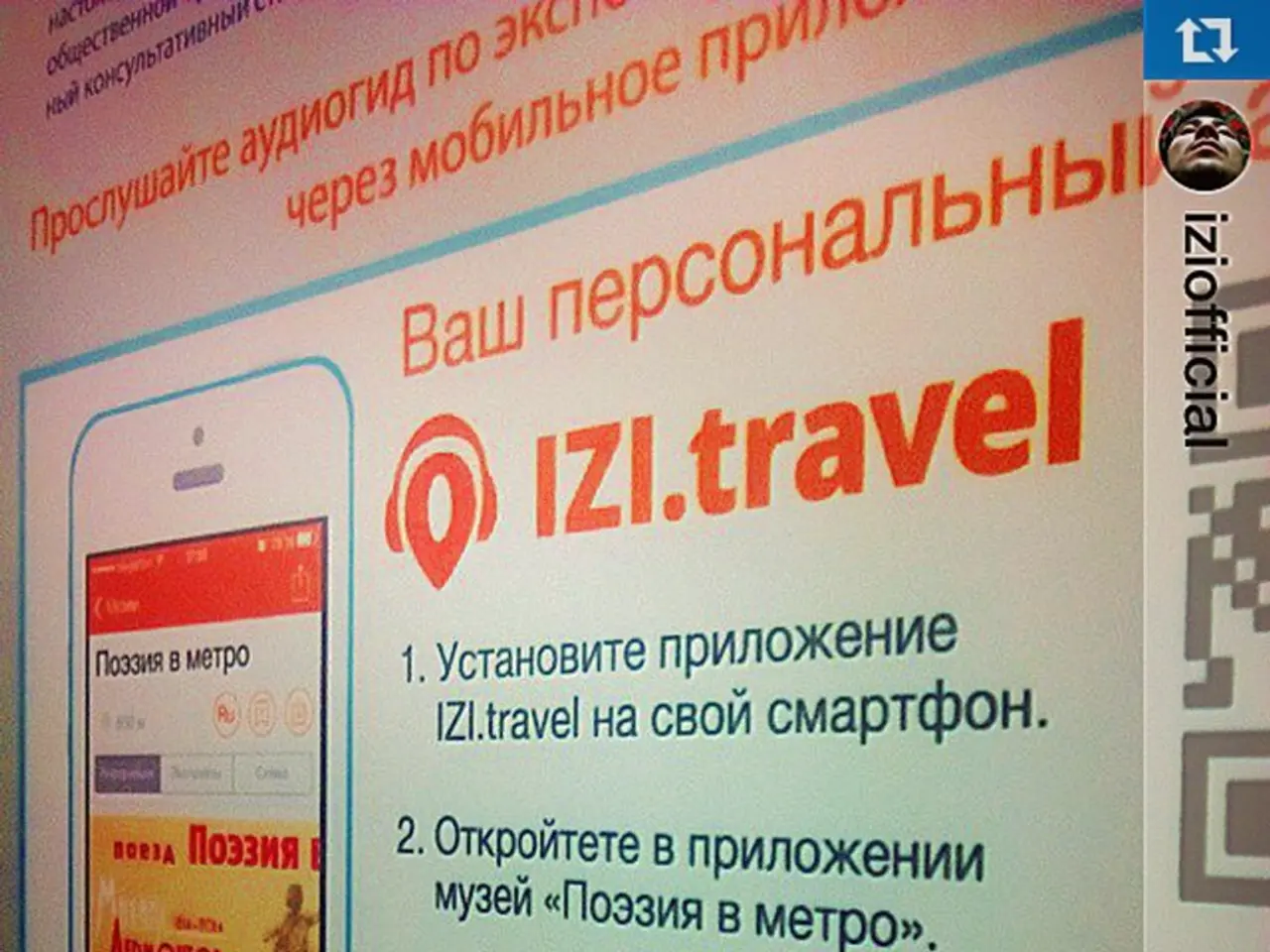Music Piracy's Detrimental Effect on the Entertainment Business
Welcome to the darker side of the music industry, where the unlawful, unauthorized duplication and dissemination of tunes take center stage. Known as music piracy, this nefarious practice manifests in various clandestine forms, such as illicit downloading, file-sharing, and unauthorized reproduction and distribution of CDs. The modern era, fueled by digital technology and the internet, has made it strikingly easy to access and share music without proper compensation, leading to a precipitous rise in music piracy over the past few decades.
Treading Through the Rubble Created by Music Piracy
The consequences of music piracy are far-reaching, affecting everyone from the artists and record labels to the common consumer and the broader economy. The accessibility of music through online platforms and file-sharing networks has made music piracy a tempting option for many, leading to a decline in sales of physical albums and digital downloads.
Big-time artists and labels taking a hit
The music industry has been battling the fallout from piracy for years, struggling to recover investments and generate profits from their hard-earned creations. With illicit downloading sites and peer-to-peer networks running rampant, it's become a challenge for artists and labels to recoup their losses and thrive in this competitive landscape.
Stinging the Economy as a Whole
However, the impact of music piracy extends far beyond the music industry, affecting other sectors as well. The decline in sales of physical albums has cast a pall over retailers who rely on music sales as a primary source of revenue. Furthermore, the shrinking revenue generated from music sales has resulted in reduced tax collections, negatively affecting public services and infrastructure. This, in turn, results in a decline in overall economic growth.
Setting the Record Straight: The Legal and Ethical Implications
The rise in music piracy has sparked a heated debate about the legality and ethics of the practice. On the one hand, it's a violation of copyright law, with individuals engaging in piracy breaking the law and facing potential legal action from copyright owners. From an ethical standpoint, music piracy is also questionable, as it involves taking the fruits of someone’s hard work without permission or just compensation.
Artists' Creativity Suffering
Another critical aspect to consider is the effect that music piracy has on artists and their creativity. The pirating of music undermines an artist's ability to make a living and invest in their next project, leading to a decline in creativity and innovation within the industry. Furthermore, the demoralizing experience of seeing their work plundered without their consent can have a detrimental impact on an artist's motivation and inspiration.
The Long Reach of Music Piracy: Crippling those Other Than Artists and Labels
The devastating effects of music piracy don't stop at the artists and labels who rely on music sales for their livelihoods. Many other players in the music industry feel the sting of piracy as well.
Record labels and distribution companies in shambles
The decline in sales of physical albums and digital downloads has left record labels and distribution companies struggling to stay afloat. With less revenue coming in, these businesses are forced to downsize, leading to job losses and a further decline in economic activity within the industry. Moreover, the lack of finances for investments in new technology and innovation impedes their ability to compete in the industry and offer consumers fresh, engaging ways to enjoy music.
Locking down the Gates: Tech-driven Solutions to Tackle Piracy
Recognizing the need to protect the rights of artists and copyright holders, the music industry has set its sights on high-tech solutions to combat piracy effectively. Here are some of the promising techniques that are being developed and implemented to bolster security and deter piracy.
Digital Rights Management: Taking Charge of Your Content
Digital Rights Management (DRM) technology is crucial in securing digital content by controlling its use and access. DRM systems protect copyrighted material, making it more challenging for individuals to engage in piracy. Examples of widely-used DRM systems include Google Widevine, Apple FairPlay, and Microsoft PlayReady.
Watermarking & Encryption: Hiding in Plain Sight
In addition to DRM, digital watermarking and encryption are increasingly being utilized to secure music content. These techniques involve embedding invisible digital watermarks within music files and applying robust encryption to the tracks to deter potential pirates and support automated detection and takedown processes.
AI-Powered Piracy Tracking: Clever Catching of Criminals
Artificial intelligence plays a role in monitoring online platforms for unauthorized content distribution, detecting suspicious behavior, and identifying hackers. AI-powered tools keep a keen eye on piracy activities in real-time, enabling prompt action against pirates and preventing their work from escalating.
Blockchain: Casting an Ironclad, Indelible Mark on Content Ownership
Blockchain technology emerges as a powerful tool for verifying content ownership, providing a tamper-proof record of rights across multiple platforms and jurisdictions. By establishing unquestioned proof of ownership, blockchain helps safeguard content and swiftly resolve disputes related to copyright violations.
In the Name of Justice: Legal Remedies & International Enforcement
While technological approaches are significant, the music industry also relies on the might of the law to combat piracy. The following legal tools and enforcement mechanisms are common in the war against music piracy:
DMCA Takedown Notices: Vanquishing Unlawful Content
The Digital Millennium Copyright Act (DMCA) empowers copyright holders to issue takedown notices to websites and hosting platforms, promptly removing infringing content.
Copyright Litigation: Slapping Perpetrators with Consequences
Utilizing federal lawsuits and alternative resolution bodies, such as the Copyright Claims Board, the music industry takes legal action against pirates to deter them from engaging in piracy and to punish offenders.
International Agreements: A Global United Front Against Piracy
Frameworks like the Anti-Counterfeiting Trade Agreement (ACTA) foster collaboration between nations in the fight against piracy, bolstering the enforcement efforts against piracy networks.
Criminal Penalties & Import Controls: Wielding the Hammer Against Pirates
According to the NET Act, even non-profitable piracy is considered a criminal offense, and customs authorities are authorized to intercept counterfeit physical media.
Website Blocking: Grounding Piracy Sites for Good
Courts and governments have the power to block access to major piracy sites, significantly reducing piracy traffic by up to 90% in certain cases.
Educational and Access Strategies: The Power to Choose
To reduce the demand for pirated music, educational campaigns inform customers about the adverse effects of piracy and the benefits of legal music platforms. Simultaneously, offering affordable, accessible, and user-friendly legal music platforms diminishes the appeal of pirated content, enabling the industry to expand its reach and secure the rights of artists and copyright holders.
Building a Brighter Future: The Music Industry Strikes Back Against Piracy
In the face of the new musical challenges posed by technology and music piracy, the music industry is evolving and winning the battle against piracy with cutting-edge solutions. By combining technology, law, and education, the industry strives to protect artists’ rights, secure revenue streams, and create a more sustainable, ethical landscape for the music industry.
Exploring New Business Models: Expanding the Reach of Legal Music
Adaptation and innovation are vital to the future success of the music industry. One promising avenue is the development of new business models, such as subscription-based services that offer unlimited access to a vast library of music for a monthly fee, making it easy and convenient for consumers to access music legally.
Making the Most of Tech: Ensure a Shining Future for All
Investing in technology and innovation is essential for keeping up with changing consumer behavior and adapting to new trends in the music industry. As technology continues to advance, new strategies and techniques will emerge that protect artists’ rights, support legal access to music, and promote the growth of the music industry in the adverse conditions created by piracy.
Ultimately, the future of the music industry lies in its ability to overcome the challenges presented by piracy and create a fair, sustainable environment where artists and copyright holders can receive proper compensation for their work. The music industry must continue to develop innovative solutions, educate consumers, and collaborate with lawmakers to safeguard the rights of artists and protect the industry from the hidden threats lurking in the shadows of music piracy.
If you're intrigued by the world of music piracy and its impact on the music industry, take a glimpse at our platform's article on how to choose colors that perfectly complement your skin tone. Getting a grasp of the nuances of color and skin tones can be just as important as understanding the complexities of the music industry. https://our website/2024/07/04/how-to-choose-colors-that-complement-your-skin-tone/
FAQs
Q: What is music piracy?
A: Music piracy is the unauthorized copying, distribution, and sharing of copyrighted music without the consent of the copyright owner. This can involve downloading music from illegal websites, sharing files via peer-to-peer networks, and burning and distributing unauthorized copies of music.
Q: How does music piracy affect the music industry?
A: Music piracy has a significant negative impact on the music industry, resulting in lost revenue, reduced creativity, and limited opportunities for artists and labels to invest in new talent and produce high-quality music. The trend also affects the broader economy, leading to job losses in related sectors and reduced economic activity.
Q: What are the legal consequences of music piracy?
A: Engaging in music piracy can result in legal consequences, including fines and potential criminal charges. Copyright infringement laws protect the rights of music creators and owners, making acts of piracy illegal.
Q: How does music piracy impact artists and musicians?
A: Music piracy can have a direct impact on artists and musicians by reducing their ability to earn a living from their music. Piracy hinders their ability to create new music, invest in their careers, and earn royalties, resulting in a decline in the quality and quantity of new music being produced.
Q: What measures are being taken to combat music piracy?
A: The music industry is employing a multi-layered strategy to tackle music piracy, including the use of digital rights management (DRM), watermarking and encryption, AI-powered piracy tracking, blockchain for content verification, DMCA takedown notices, copyright litigation, international agreements, criminal penalties, website blocking, risk-based educational reforms, and improving legal access to music.
- As music piracy continues to impact the broader economy, retailers who depend on music sales for revenue are struggling to stay afloat, leading to a decline in economic activity beyond the music industry.
- The shrinking revenue from music sales due to piracy not only affects record labels and artists but also trickles down to the entertainment industry, impacting businesses associated with music licensing, such as movie studios and TV networks.




